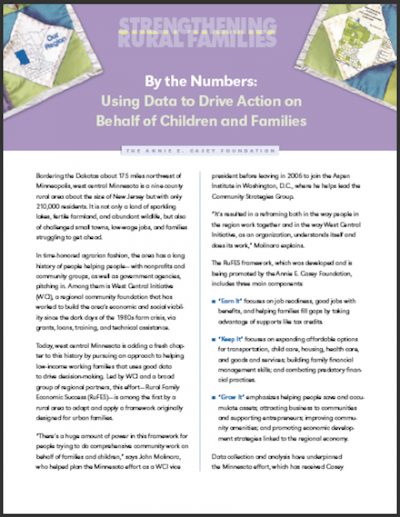A Three-Part Approach
The Rural Family Economic Success framework has three parts: 1) Earn It, focused on training and jobs; 2) Keep It, devoted to building support services and financial skills; and 3) Grow It, which emphasizes economic development.







